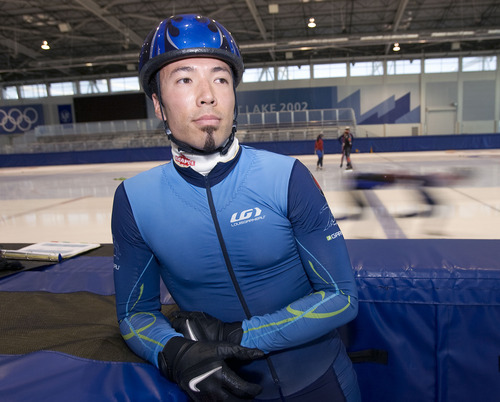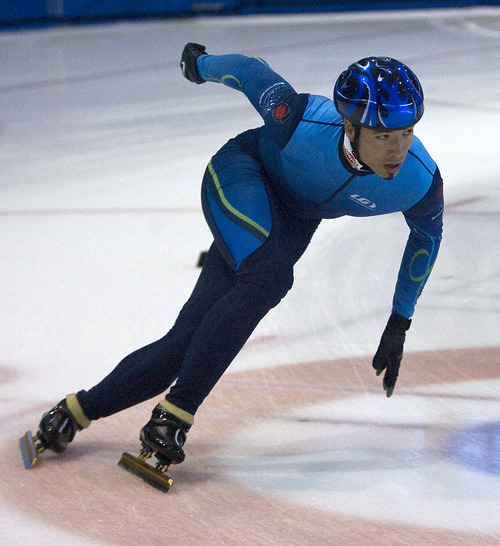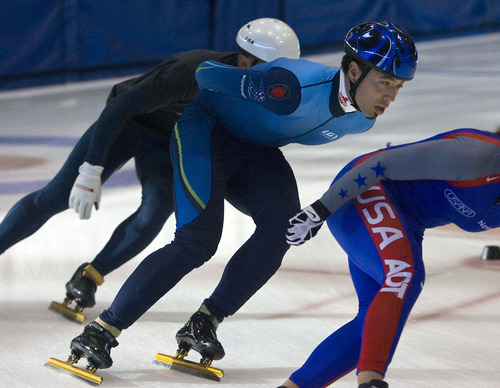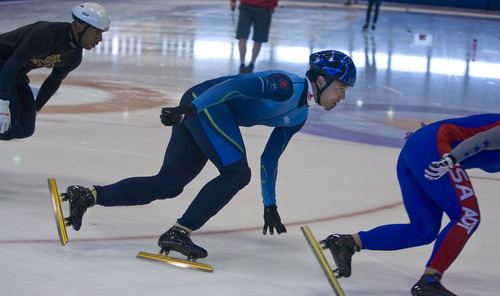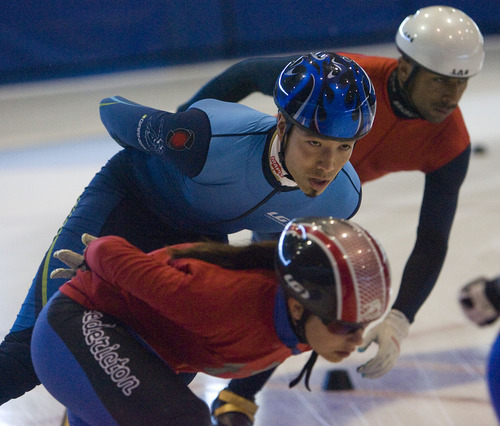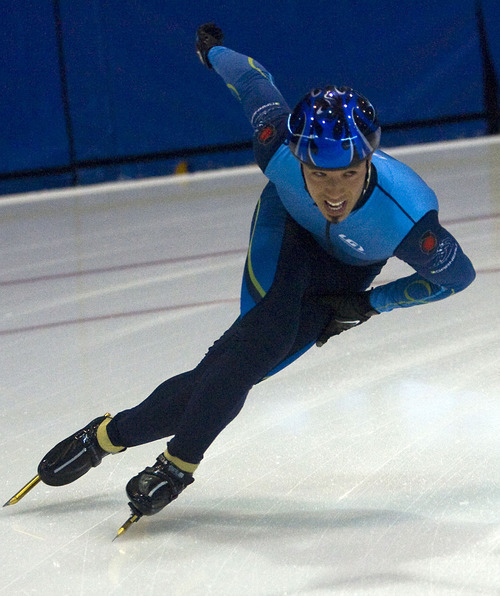This is an archived article that was published on sltrib.com in 2011, and information in the article may be outdated. It is provided only for personal research purposes and may not be reprinted.
Kearns • Michael Hubbs was born with a need for speed.
As an avid inline skater at age 15, he outraced a friend riding a BMX bicycle.
In high school, Hubbs won a Texas state championship in swimming.
In his early 20s, Hubbs says he would ride his motorcycle at speeds as high as 185 miles per hour.
For the past eight months, Hubbs has been a blur on ice, chasing his childhood dream of becoming an Olympic short-track speed skater.
"On the ice, it feels really smooth," said Hubbs, who moved from Texas last October. "It's a lot faster than inline. You get low and you can glide. … It feels great."
Hubbs is attempting to become the 15th deaf athlete to compete in the Olympics.
Born with severe hearing loss, Hubbs had never laced up speed skates before moving to Utah to train at the Olympic Oval. But years spent on inline skates growing up and a summer of inline competition last year gave him the confidence to switch surfaces.
"It looks similar, but it's very different," Hubbs said, comparing the two sports. "I'm happy with the progress I've made so far. My expectations were a lot higher, but that's because I thought the sports were more similar."
Hubbs has moved rapidly through the ranks since November, and trains with the Fast Team — one level below the National Team.
"Most of these kids start at the age of 12 or younger," coach Anthony Barthell told The Associated Press last month. "He still has some work to do, just finding himself, finding balance. But in the little time he's been around, he's doing fairly well."
Hubbs, 28, said he uses his hearing impairment to his advantage. Sure, he can't hear his coach yelling instructions and updating him on his position during a race, but Hubbs said his other senses are heightened.
"I depend a lot on my eyes," said Hubbs, who can hear the starter's pistol and the bell signalling the race's final lap. "It takes practice, but you can feel who's behind you in your mind."
Said teammate Jordan Jackson: "Not having that affect me, I would imagine it would slow me down. But I know Michael is adamant that the hearing impairment is actually beneficial to him, in that it hones his other senses."
Hubbs, who had a strained relationship with his father and turned to drugs and alcohol during a rebellious period as a teenager, is dogged in his determination to make his Olympic dream a reality.
He trains up to eight hours a day, six days a week to fine-tune his mechanics and form. He said having few friends locally makes it easier to stay dedicated. Instead of hanging out or going to dinner with friends, Hubbs hits the local 24-Hour Fitness.
He is preparing for the season's first competition, the Short Track Desert Classic at the Oval, and will compete in the American Cup beginning Oct. 1 in St. Louis.
Hubbs said his goals are to make the Speed Team's Group A — with Olympic champion Apolo Anton Ohno — by December, and to make the National Team by next year.
From there, it's the Olympic team competing in Sochi, Russia, in 2014.
"He could possibly surprise people over the next couple of years," Barthell said. "If he gets a great understanding quickly, then it's possible he could make an Olympics." —
Loud and clear
Michael Hubbs, born with severe hearing loss, is training to be a short-track speed skater in the 2014 Winter Olympics.
Hubbs, who has a background as an inline skater, said moving to the ice was a bigger transition than he imagined. "It's a lot faster than inline. The techniques are very different."
Hubbs said he depends a lot on his eyes during a race, comparing his eyesight to that of a bald eagle.


